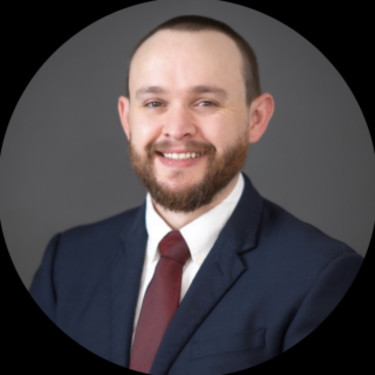One question I am often asked from people of all sorts of worldviews is if I have ever witnessed a “miracle” in medicine. While I can recall a few, one that always sticks out in my mind happened when I was a general surgery intern.
In brief, I was the night-float intern tasked with overseeing the floor patients when I got paged during sign out from the SICU for a code. I informed the charge nurse who answered the phone that the PGY2 manages the SICU, and she responded that the second-year resident told her to page me. Odd, but I ran down the hall and took the elevator 12 floors in response only to discover a full code team at the patient’s bedside. At this point, the room was filled with more people than it could fit running a code. Technically, I had no reason to be there but also felt compelled to stay. Despite a time in my life where I felt particularly non-religious, the only thing I could think to do in this moment was pray.
I don’t recall what I prayed but, when I finished, I noticed the line of people giving chest compressions had dwindled, so I filed in behind the last person on the patient’s left. When it came time for me to give compressions, the patient had already been coded for 22 minutes without a pulse. Once my time for compressions came, I supplied only one or two before, all of a sudden, a pulse registered. I continued with compressions while the code lead joked that I should have shown up sooner.
I graduated soon after and never figured out why the patient coded or why I was paged to the ICU that singular morning. Two weeks later, though, I asked the new resident on service for updates, and he told me the patient was already discharged without any subsequent deficits.
This event ended up being a fairly pivotal moment for me in my faith and helped me realign my career goals with my virtues. In writing this piece, I suddenly recalled a book given to me eight years ago called “The Power of Full Engagement.” This book discusses ways to manage different types of “energy”: physical, emotional, mental, and spiritual. In this instance, “spiritual” does not necessarily require a “religious” foundation but rather an understanding of one’s personal values and morals. For me, religion is a guiding force in defining those values. The book goes on to describe spiritual energy as a force-multiplier, of sorts, for the other types of energy and how all four types of energy can suffer when our career does not align with our values. One cited study that stuck with me found children will engage less in an activity they enjoyed after motivation becomes driven by extrinsic rewards. All of the above seems particularly relevant in an era where physician burnout is reaching all-time highs and the “extrinsic rewards” are getting slashed.
That morning in the ICU also set in motion a decades-long inquiry in asking myself, “What exactly is the role of religion in medicine?” Spoiler alert, I don’t have an exact answer nor do I expect I ever will.
Sometimes the relationship between religion and medicine is probably not too controversial, like making certain accommodations to respect a patient’s religion when providing care — finding alternatives to donor blood transfusion during a large surgery or adjusting rounding times so as not to disrupt a patient’s morning prayers are two examples I’ve witnessed. In that same vein, as professionals, we should be respectful and reasonably accommodating of our colleagues’ religious viewpoints. Maybe that means covering a different shift so a colleague can observe a religious holiday.
In other cases, the interplay between medicine and religion seems obvious to me, but I’ve come to learn that other clinicians would disagree with my stance. My belief is that we make the choice to practice in the field of medicine and, in doing so, we make a commitment to humanitarianism. The Hippocratic oath even calls us to care for anyone who suffers or “needs [our] art.” If there is a certain procedure or treatment you feel religiously convicted against providing, the original Hippocratic oath provides you an easy out to not provide if you’re not trained/knowledgeable on how to do so. Despite our oath, there are those who would refuse to provide medical care to individuals based on the patient’s religion or lifestyle. This mentality, at best, limits a patient’s access to care in an era where doctor shortages are rapidly increasing. At worst, these policies could foster a patient’s distrust in the entire medical community — a system where patient-clinician trust can literally mean life or death.
So how do we combat such distrust? Activism to change legislation is certainly one way, but the process is slow moving and, in some states, the momentum is in the opposite direction. However, it’s certainly worth the fight to strengthen trust in our community. On a more nuclear level, building a culture of understanding is crucial. In recent years, I’ve witnessed numerous institutions send informative emails around major religious holidays to explain the context, history, and meaning. Some institutions even host campus-wide events to further promote camaraderie and understanding. On a personal level, trust simply has to be earned by treating patients and colleagues with respect — even in the setting of religious differences.
One area I often struggle to reconcile is the appropriate amount of religion, if any, to bring to work. While politics and religion are typically considered “off limits” in a professional environment, medicine and religion seem more intertwined. Half the hospitals I’ve worked at carried the name of a religious denomination. Most inpatient facilities provide chaplaincy services and places of prayer. As an individual, though, I recognize people have used the banner of my religion in hateful and harmful ways toward those of different religions/lifestyles. Currently, my approach is to avoid discussing religion with any patient unless they bring it up in relation to their care. Even then, I typically keep the conversation pretty superficial. I am not at all ashamed of my religion but would avoid potentially planting a seed of distrust in a patient in my care who may have been hurt by someone else also claiming to be Christian.
Religion, even outside a medical setting, is a sensitive issue for many. Clinicians might feel inclined to bury our heads in the sand with regards to religion’s place within the workplace, but I am not convinced avoidance is in the overall best interest of our patients or community. We are creatures of mind, body, and spirit privileged to work in a field dedicated to improving the mind, body, and spirit of those around us. Maintaining an environment of understanding and inclusivity requires active, intentional effort in an ever-changing culture. However, I believe these efforts serve to demonstrate the health care community’s commitment to respect and empathy — a cornerstone to building the trust needed for an effective patient-doctor relationship.
What have been your experiences with religion in medicine? Share in the comments.
Kyle Walker, MD, MBA, is an orthopaedic surgeon who is currently training as the Sarcoma Advanced Research and Clinical Fellowship at U.C. Davis in Sacramento. He enjoys skiing, tennis, and spending time at the pool with his wife and two sons. He can be found on instagram at @kywalkermd. Dr. Walker is a 2023–2024 Doximity Op-Med Fellow.
Image by Lidiia Moor / Getty






